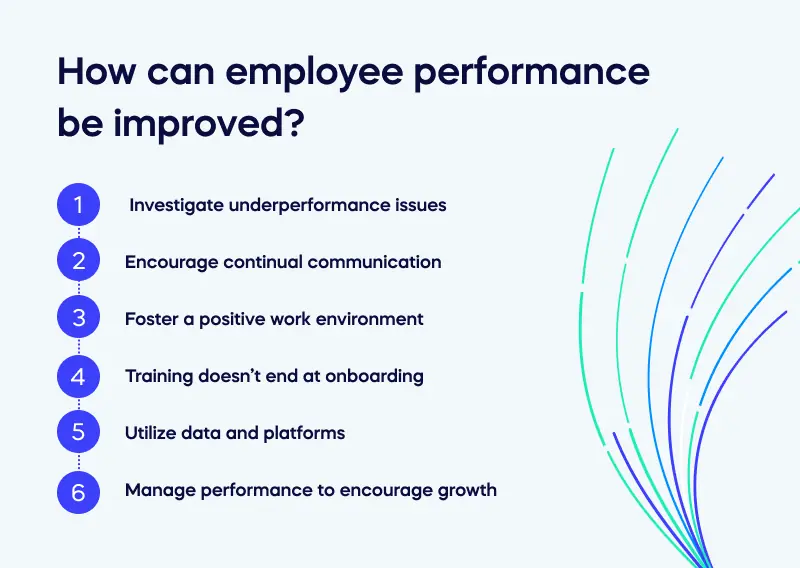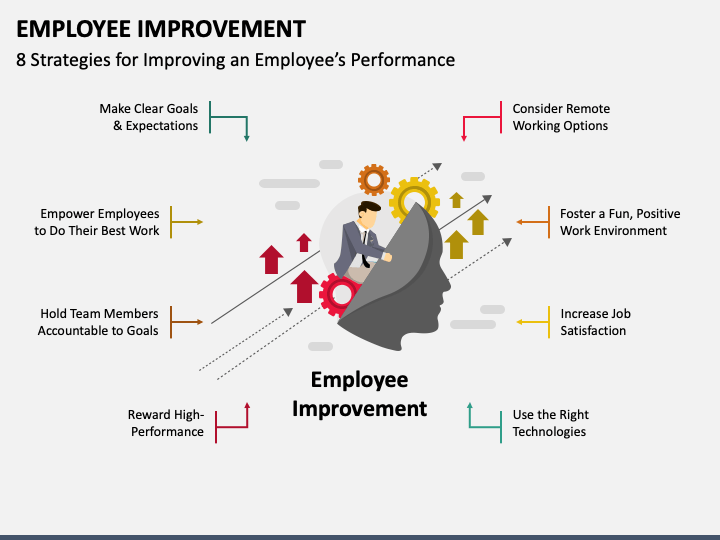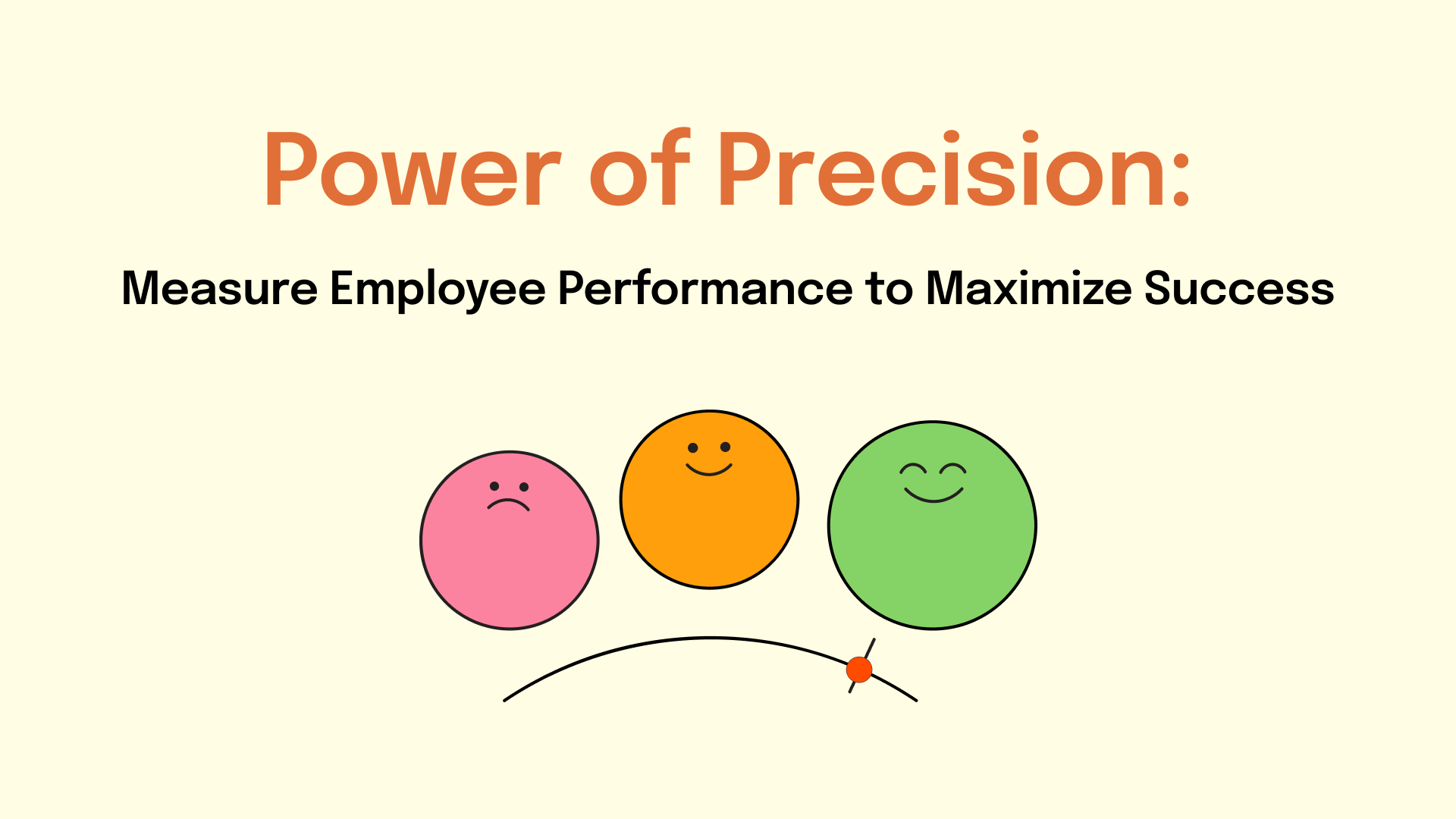How To Maximize Employee Performance

In today's fiercely competitive business landscape, maximizing employee performance isn't just a desirable goal; it's a critical imperative for survival and sustained growth. Businesses are under immense pressure to optimize their workforce, yet many grapple with strategies that yield consistent and tangible results.
This article delves into proven strategies and actionable insights to help organizations unlock the full potential of their employees. It will explore key areas like fostering a positive work environment, providing effective training and development, implementing robust performance management systems, and leveraging technology to enhance productivity.
Creating a Positive and Supportive Work Environment
A positive work environment is the bedrock of high employee performance. Research consistently demonstrates a strong correlation between employee well-being and productivity. Creating a culture of trust, respect, and open communication is essential.
Gallup's State of the Global Workplace Report reveals that engaged employees are significantly more likely to be productive, innovative, and committed to their organizations.
Fostering Open Communication
Regular feedback, both positive and constructive, is crucial for employee growth. Implement strategies like one-on-one meetings, team discussions, and anonymous surveys to encourage open dialogue. This transparency allows employees to feel heard, valued, and understood.
Recognizing and Rewarding Achievements
Acknowledging and celebrating successes, both big and small, can dramatically boost morale and motivation. Implement a system of rewards and recognition that aligns with company values and employee preferences.
Consider both monetary and non-monetary incentives, such as bonuses, promotions, public acknowledgment, and opportunities for professional development.
Investing in Training and Development
Equipping employees with the necessary skills and knowledge is vital for achieving optimal performance. A commitment to continuous learning demonstrates that the organization values its employees' growth and development.
According to the Association for Talent Development (ATD), companies that invest in comprehensive training programs see higher employee retention rates and improved performance metrics.
Identifying Skill Gaps
Conduct regular skills assessments to identify areas where employees may need additional training. These assessments can be formal, such as standardized tests, or informal, such as performance reviews and feedback sessions.
Providing Customized Learning Opportunities
Offer a variety of training formats to cater to different learning styles and preferences. This could include online courses, workshops, mentoring programs, and on-the-job training. Tailoring training to individual needs ensures maximum impact.
Implementing Effective Performance Management Systems
A robust performance management system provides a framework for setting clear expectations, monitoring progress, and providing regular feedback. It should be a continuous process, not just an annual review.
SHRM (Society for Human Resource Management) emphasizes the importance of setting SMART goals (Specific, Measurable, Achievable, Relevant, and Time-bound) to ensure clarity and accountability.
Regular Feedback and Coaching
Provide frequent feedback on employee performance, highlighting both strengths and areas for improvement. Coaching should be an ongoing process, with managers acting as mentors and guides.
Performance Appraisals and Development Plans
Conduct regular performance appraisals to formally assess employee performance against predetermined goals. Use these appraisals to develop individualized development plans that outline specific steps for improvement and growth.
Leveraging Technology to Enhance Productivity
Technology can play a significant role in enhancing employee productivity and streamlining workflows. Businesses should invest in tools and platforms that support collaboration, communication, and task management.
According to a report by McKinsey Global Institute, leveraging technology effectively can increase productivity by as much as 20-25%.
Collaboration and Communication Tools
Implement tools that facilitate seamless communication and collaboration among team members, such as project management software, instant messaging platforms, and video conferencing tools.
Automation and Process Optimization
Identify tasks that can be automated or streamlined using technology. This can free up employees to focus on more strategic and creative work. Consider using tools like RPA (Robotic Process Automation) to automate repetitive tasks.
The Future of Employee Performance
The future of employee performance will be increasingly shaped by factors such as remote work, artificial intelligence, and the growing emphasis on employee well-being. Organizations that embrace these trends and adapt their strategies accordingly will be best positioned to succeed.
In conclusion, maximizing employee performance requires a multifaceted approach that encompasses creating a positive work environment, investing in training and development, implementing effective performance management systems, and leveraging technology. By focusing on these key areas, organizations can unlock the full potential of their workforce and achieve sustainable growth.

















